The development, fabrication and operation of a fuel cell requires the combination of different areas of natural and engineering sciences. These scientifically subjects may range from chemistry, physics, electrical engineering up to manufacturing and process technology. As diverse as the scientifically subjects involved in the fuel cell technology are, so are the members of the open fuel cell team.
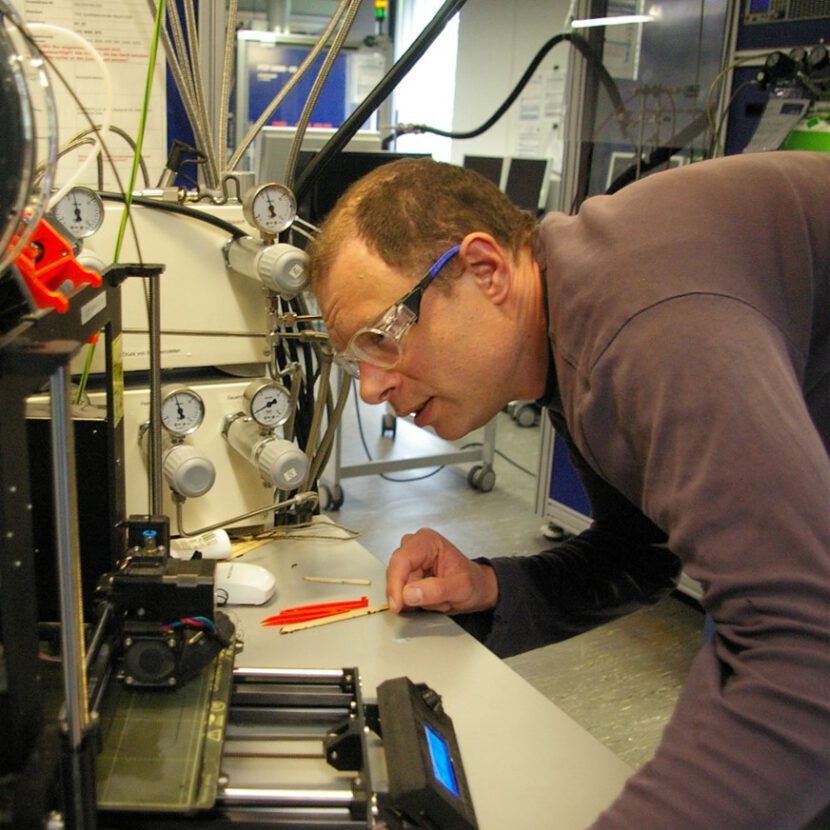
Burghard Lutter encountered craftsmanship as a kid in his grandfather’s wood workshop. After a degree in chemical engineering, he did a PhD on electrochemical sensors. During decades of research on fuel cell technology, he frequently used home made parts in the laboratory, culminating in building the Open Fuel Cell with his private 3D printer, CNC milling machine and electric iron.
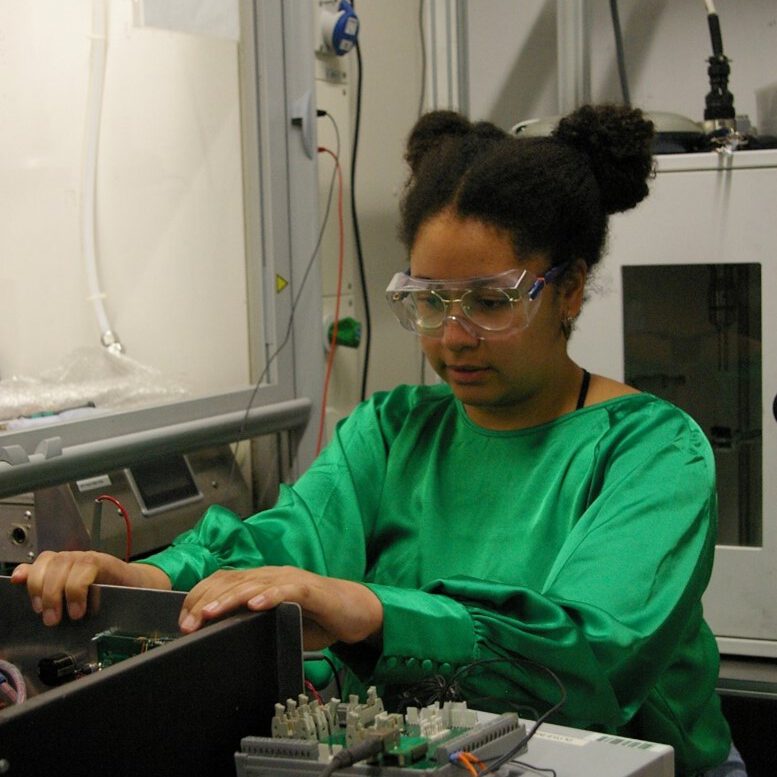
Alexandra Muskatewitz is currently pursuing her studies in Energy Science at the University of Duisburg-Essen. Since 2020, she has been engaged as a student assistant at ZBT, where she also wrote her thesis using some of the first 3D printed open fuel cells. During this time she gained a lot of experience in assembling the open fuel cells.
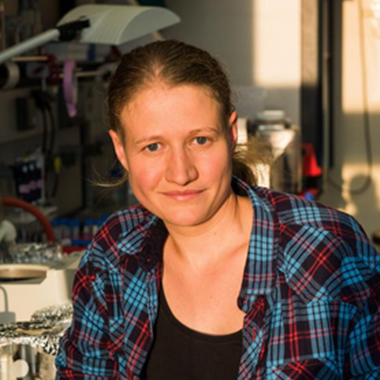
Theresa Schredelseker embarked on a quest to understand human thinking when she studied Philosophy and Biology at University of Innsbruck. During her PhD on genetic factors in embryonic brain development at University of Freiburg she discovered her passion for science communication and outreach. She then specialized in empowering researchers to share their stories and technologies with the public. After learning about Burghard’s self-made fuel cell she was thrilled to bring it to the world.
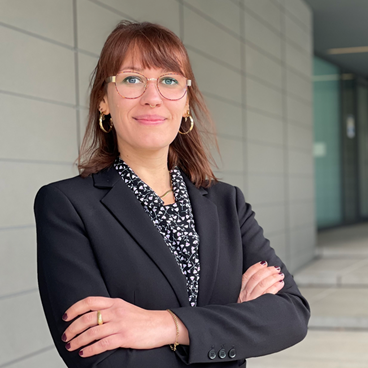
Livia Wiedau has been working as a research assistant and PhD candidate at the Chair of Manufacturing Engineering with a focus on additive manufacturing since 2017. Before completing her studies in mechanical engineering, she trained as a ship mechanic. 3D printing has accompanied her since her bachelor’s degree and consolidated in her master’s degree, both of which she completed at the FH Aachen.
![]()
Leander Kucklick
A few years ago, Leander stumbled across an eco-village in southern Spain. The creative people in this village were using an open source microcontroller called Arduino to control the movement of a solar panel that follows the sun. Since then, Leander has become addicted to the open source or, more precisely, the open hardware movement and its ideas. Over the years, he developed a variety of applications for personal use as well as during his bachelor’s, master’s and now PhD studies.
Now Leander is at home in the hydrogen and maker community on the Duisburg campus. When he heard about Burghard’s initiative to make the excellent design of the DIY fuel cell available as open source, Leander was immediately fired up about the idea of not just putting CAD files on the Internet and saying you have to figure out the rest yourself. Instead, Leander is thinking about how to publish the entire process from a few screws, circuit boards, filament, laminating film and a membrane to a fully functional open fuel cell.
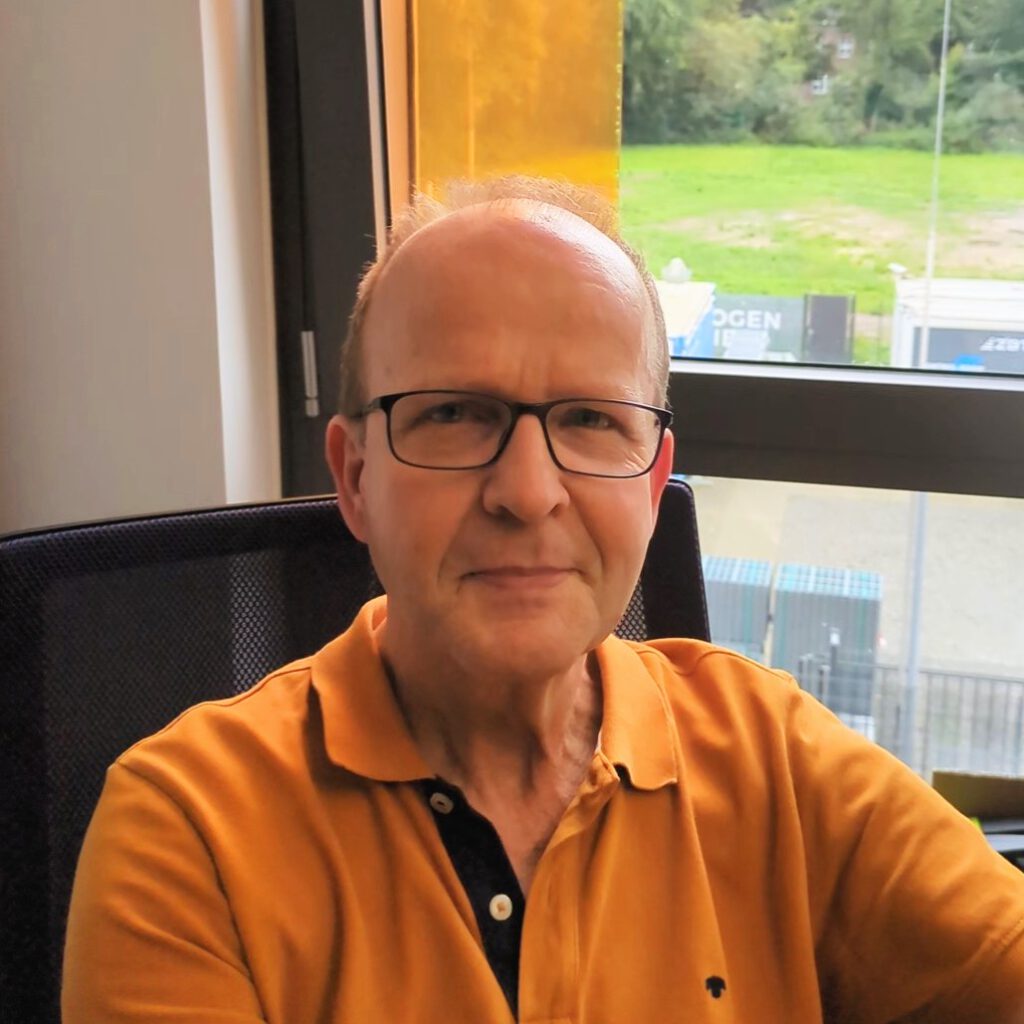
Roland Bartolomäus’ passion for chemistry ignited as a teenager during a formative holiday job at the Hugo colliery’s coking plant laboratory in Gelsenkirchen-Buer. After studying chemistry at the University of Duisburg-Essen, he became one of the first employees at the ZBT. Roland played a pivotal role in constructing and developing early generation fuel cells. Today, he focuses on producing membrane electrode assemblies, contributing his wealth of expertise to the thriving and dynamic open-fuel-cell team.